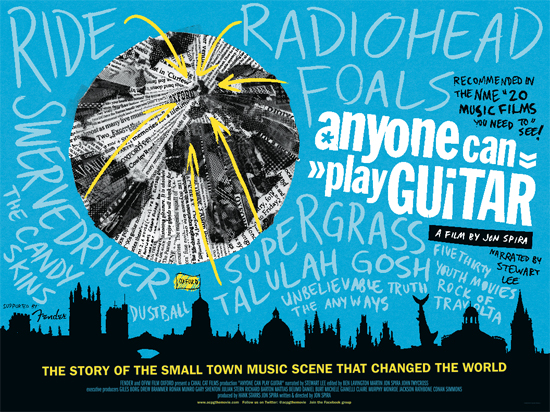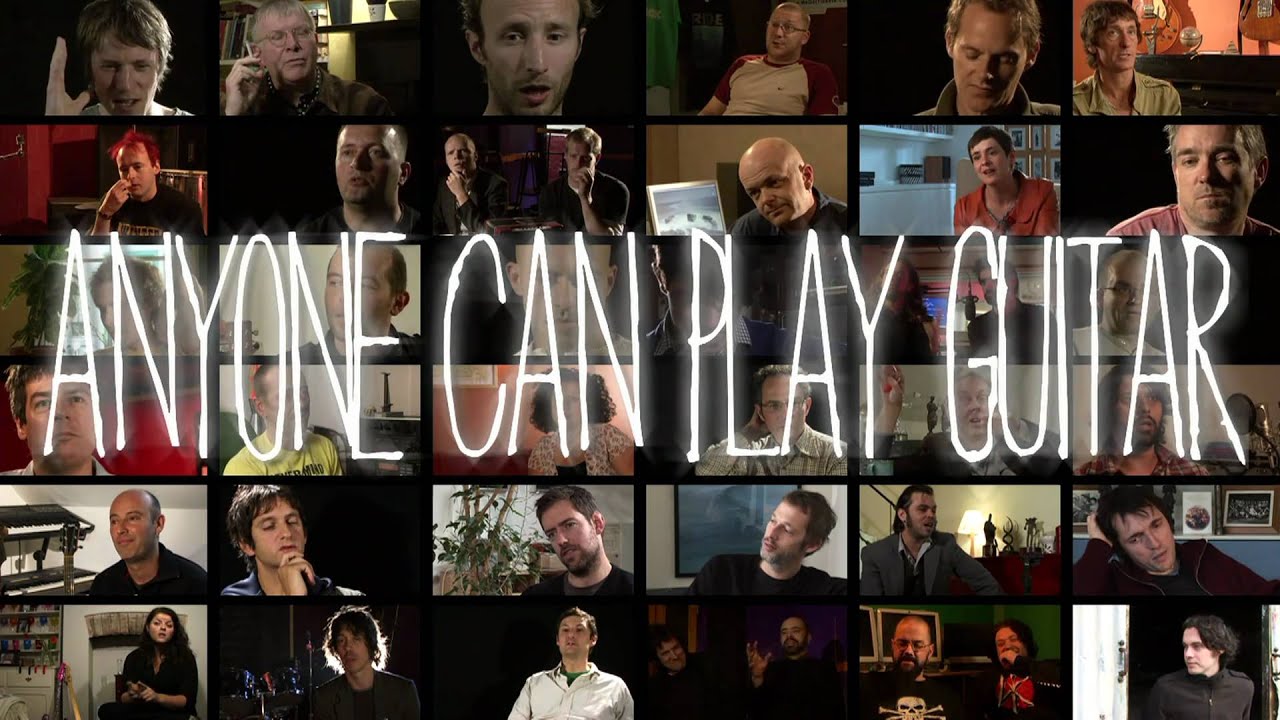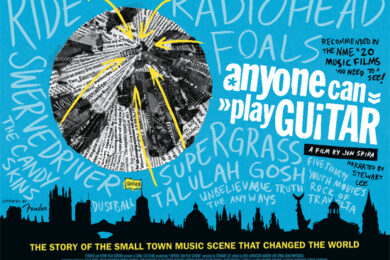Dustball, an Oxford band once supported by the late John Peel, named their latest album Potential. It’s a name that encapsulates the general attitude of the musicians that reside in the city. This rings true throughout Jon Spira’s documentary about Oxford’s music scene, Anyone Can Play Guitar: some are fortunate enough to make it big in the music world, but for those that don’t, it’s not for lack of talent.
And that statement doesn’t only apply to music – it’s true for all creative industries, including film. The themes that Spira explores will hopefully encourage audiences to consider the difficulties in all creative industries, particularly when looking at the way in which he went about making this film.
It all started with the closure of one of the venues central to the Oxford music scene. The Zodiac was being sold to the corporatised Academy Music Group, causing outcry and uniting artists that valued the venue. The furore encouraged Spira to make this documentary, interviewing many involved in the city’s scene across the period 1978 to 2007, from Amelia Fletcher from Talulah Gosh to Mark Gardener from Creation shoegazers Ride. With the same spirit of indepence, driven by passion for the subject, he put together the film by calling in favours from camera operators and charitably acquiring equipment from the local non-profit film workshop he worked at.
It would be all too easy for any filmmaker with an interest in music to fall into the trap of simply documenting the rise and success of Oxford bands such as Radiohead, Supergrass and Foals, but Spira was adamant not to do so. The purpose of Anyone Can Play Guitar matches its title – to drive home the notion that success is about more than just achieving fame.
Gaz Coombes, former singer of Supergrass and now of The Hot Rats, saw this quality about the film: “It does not necessarily document the obvious stuff,” he says. “It’s about what Oxford’s provided musically that’s gone massive, but also touching on the more tragic stories. I just think it gives it depth.”
Spira opted to film Anyone Can Play Guitar independently. “We could have gone out to get funding beforehand with a company that has a background,” he says, “But I did not want to do that. I did not want people telling me what to do and their input.”
Coombes, too, recognises the importance of that approach. “There is nothing better than an independent ground up thing where everything is exactly as the writer and director wanted it to be, and without any external interference,” he says. “And it’s the same with music. I have just done my record in my studio, and I felt like I was just laying down some spontaneous ideas without unwanted pressure from anyone. It beats sitting in an expensive studio for months, trying to finish lyrics with the record company knocking at the door.”
The documentary, narrated by comedian and journalist Stewart Lee, celebrates the city’s local scene, introducing viewers to artists from across the entire time scale it covers – 1978-2007. It also highlights the sense of community that the music scene had once upon a time time. “The Zodiac was always our meeting place,” remembers Mark Cope of The Candy Skins, and now Nine Stone Cowboy. “Once you had done a gig, you would head straight there.” Acquisition of wealth and fame was rarely the main priority for many of the artists featured in Anyone Can Play Guitar – simply being involved with a vibrant creative community was as important.
The same can be said of the documentary itself. It has very much been under the radar until recently, not going through the conventional funding and distribution channels. These decisions have brought about consequences, both positive and negative. As it wasn’t produced via the usual means, it often didn’t attract the same amount of interest and attention from the industry. This tainted Spira’s experience with film festivals. “We assumed that we would get a break in festivals and we’ve had a terrible experience with them,” he says. “Other documentary filmmakers did inform me that you have to get in via the festivals sponsors.”
However, he admits that this is a route made possible by such things as crowd-funding (offering incentives for people to invest in your art), which he used to raise additional funding to finish the film. These sort of innovations are obviously changing the pathways open to filmmakers. “We gave up on the notion of distribution quite recently; we have decided to self-release,” Spira says. “It’s really strange. I think everything is changing at the moment, and the film industry is in this state of flux.”
And at this point, despite Spira’s initial struggles to get it noticed, attention is beginning to shift towards Anyone Can Play Guitar. Radiohead were recently interviewed on Stuart Maconie and Mark Radcliffe’s show about the film, and Adam Buxton has been discussing it on his BBC 6 Radio show.
Tonight (Friday 4th November), the BFI hosts the London premiere of the film, followed by Q&As with Spira, Gaz Coombes and Radiohead members Colin Greenwood and Ed O’Brien, hosted by Adam Buxton. The film is also on tour across the UK:
4th LONDON BFI SOUTHBANK
9th HEREFORD COURTYARD
15th OXFORD PHOENIX PICTUREHOUSE
17th SHEFFIELD SHOWROOM WORKSTATION
18th NOTTINGHAM BROADWAY
22ND PRESTON CONTINENTAL
25th LEEDS HYDE PARK PICTURE HOUSE
26TH BRISTOL WATERSHED
29TH EDINBURGH CAMEO
For more info or to purchase the DVD, visit the film’s website.




